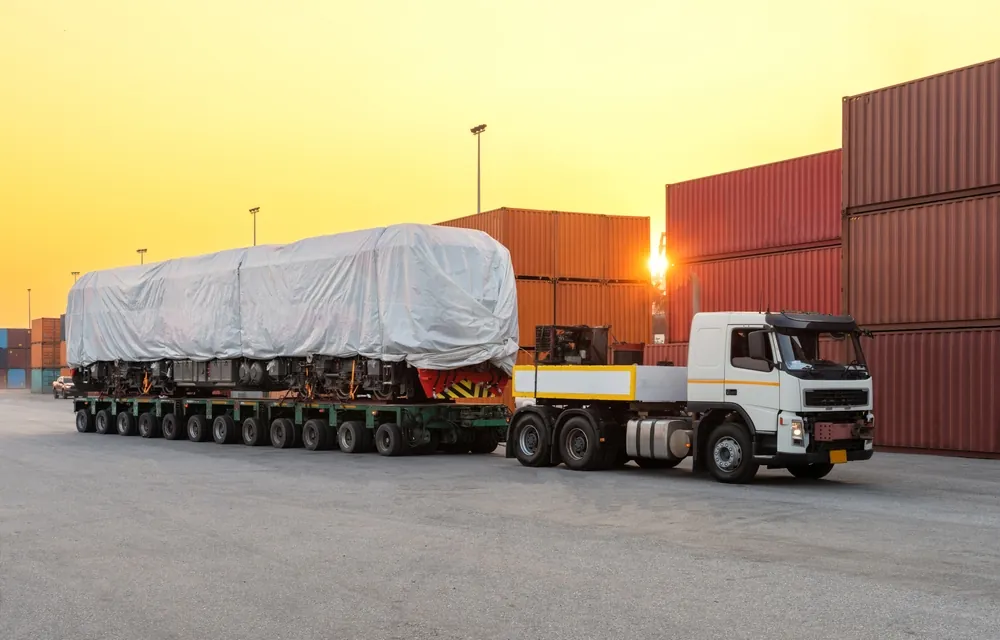Industries today depend heavily on the safe and timely movement of large-scale equipment, raw materials, and industrial components. Efficient logistics solutions are critical to maintaining productivity and meeting deadlines. Heavy freight transport plays a central role in supporting industrial growth by enabling businesses to move oversized and high-value loads across regions efficiently. Companies like Walker Logistics provide expert services that ensure industrial operations continue smoothly without interruptions.
The Importance of Heavy Freight Transport in Industry
Industrial operations rely on the consistent delivery of equipment, machinery, and materials. Delays in transportation can lead to production slowdowns, increased costs, and missed deadlines. Heavy freight transport provides a solution to these challenges, offering specialized vehicles, skilled operators, and logistical expertise to handle complex shipments safely.
Supporting Large-Scale Manufacturing
Manufacturing plants often require heavy machinery and bulk raw materials to function at full capacity. Heavy freight transport ensures these components are delivered on schedule, preventing production bottlenecks. For example, transporting large presses, molds, or industrial furnaces requires trailers and handling equipment designed specifically for oversized loads.

Facilitating Construction and Infrastructure Projects
Industrial growth is closely tied to infrastructure development. Heavy freight transport enables the delivery of construction machinery, prefabricated structures, and modular components directly to project sites. This capability allows construction companies to maintain project timelines and reduces downtime, helping large-scale projects progress efficiently.
Safety and Compliance in Heavy Freight Transport
Transporting oversized or overweight loads involves considerable safety risks. Heavy freight transport providers adhere to strict safety standards to protect both the cargo and public safety.
Specialized Trailers and Equipment
Lowboy trailers, extendable flatbeds, and multi-axle haulers are commonly used to transport large machinery. These vehicles are engineered to distribute weight evenly and maintain stability during transit. Proper use of tie-downs, chains, and hydraulic securing systems ensures that equipment remains safe throughout the journey.
Regulatory Compliance
Heavy freight transport requires compliance with federal and state transportation laws, including weight limits, permits, and safety regulations. Professional providers handle all necessary permits and approvals, reducing the risk of legal complications and ensuring that loads move efficiently and legally.
Cost Efficiency and Reliability
Investing in professional heavy freight transport may seem like an added expense, but it reduces long-term costs by preventing equipment damage, fines, and delays. Reliable transport ensures that industrial operations remain productive and projects stay on schedule.
Minimizing Delays
By coordinating schedules, optimizing routes, and using the right equipment, heavy freight transport minimizes the risk of delays. This reliability is crucial for industries that rely on tight production timelines and just-in-time delivery models.
Protecting Valuable Assets
Industrial equipment and machinery are high-value investments. Professional transport services protect these assets by providing secure handling, reducing the likelihood of damage, and ensuring operational continuity.
Enhancing Industrial Growth
Heavy freight transport is more than just moving equipment; it is a key factor in industrial expansion. Reliable transport allows companies to scale operations, enter new markets, and undertake larger projects without logistical constraints.
Enabling Expansion into New Markets
Industries looking to expand regionally or internationally rely on heavy freight transport to move machinery and components safely across borders. Providers like Walker Logistics handle permits, customs requirements, and route planning, enabling seamless expansion.
Supporting Large-Scale Projects
From mining and energy production to manufacturing and construction, heavy freight transport supports large-scale operations by delivering critical machinery and materials efficiently. This capability ensures that industrial projects can grow and remain competitive in their sectors.

Leveraging Technology for Efficient Freight Management
Modern heavy freight transport relies on technology to optimize operations and provide clients with transparency. GPS tracking, load monitoring, and digital scheduling allow real-time updates on shipments, improving coordination and reducing uncertainties.
Route Optimization: Advanced software helps identify the safest and most efficient routes, avoiding traffic congestion, low-clearance bridges, and road restrictions. Optimized routing saves time, reduces fuel consumption, and ensures timely delivery.
Real-Time Communication: Clients can monitor the status of their shipments and receive updates on delivery schedules. This transparency allows project managers to plan operations effectively and respond to changes in real time.
Conclusion
Heavy freight transport is an essential component of industrial growth. By ensuring safe, reliable, and timely delivery of oversized machinery, raw materials, and equipment, it enables businesses to maintain productivity, scale operations, and complete large projects efficiently. Companies like Walker Logistics provide professional services that combine expertise, technology, and safety compliance, making industrial operations more efficient and cost-effective. With the right heavy freight transport solutions, industries can focus on growth and innovation without logistical concerns.
FAQs
What types of cargo require heavy freight transport?
Oversized machinery, industrial equipment, prefabricated structures, and bulk materials often require heavy freight transport.
How does heavy freight transport improve industrial efficiency?
It ensures timely delivery of equipment and materials, reducing downtime and preventing production delays.
Are permits required for heavy freight transport?
Yes, transporting oversized or overweight loads typically requires state or federal permits, which professional providers handle.
What safety measures are used in heavy freight transport?
Specialized trailers, proper securing methods, trained operators, and compliance with regulations ensure safety during transport.
Why choose Walker Logistics for heavy freight transport?
Walker Logistics offers experienced operators, specialized equipment, and reliable logistics solutions to support industrial growth and timely deliveries.






